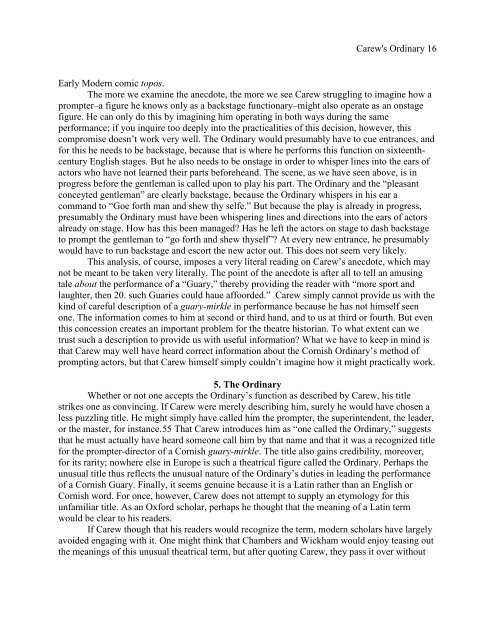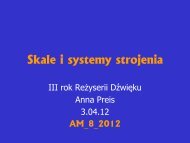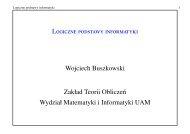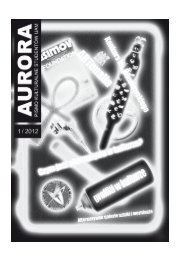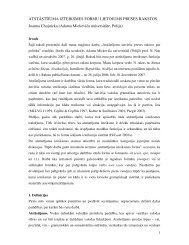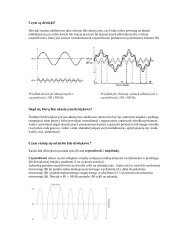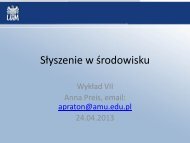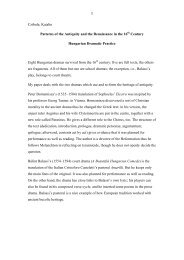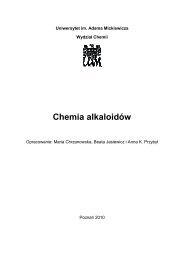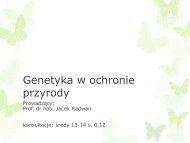Richard Carew. The Ordinary, The Ordinalia, and the Ordinary Actor ...
Richard Carew. The Ordinary, The Ordinalia, and the Ordinary Actor ...
Richard Carew. The Ordinary, The Ordinalia, and the Ordinary Actor ...
You also want an ePaper? Increase the reach of your titles
YUMPU automatically turns print PDFs into web optimized ePapers that Google loves.
<strong>Carew</strong>'s <strong>Ordinary</strong> 16<br />
Early Modern comic topos.<br />
<strong>The</strong> more we examine <strong>the</strong> anecdote, <strong>the</strong> more we see <strong>Carew</strong> struggling to imagine how a<br />
prompter–a figure he knows only as a backstage functionary–might also operate as an onstage<br />
figure. He can only do this by imagining him operating in both ways during <strong>the</strong> same<br />
performance; if you inquire too deeply into <strong>the</strong> practicalities of this decision, however, this<br />
compromise doesn’t work very well. <strong>The</strong> <strong>Ordinary</strong> would presumably have to cue entrances, <strong>and</strong><br />
for this he needs to be backstage, because that is where he performs this function on sixteenthcentury<br />
English stages. But he also needs to be onstage in order to whisper lines into <strong>the</strong> ears of<br />
actors who have not learned <strong>the</strong>ir parts beforehe<strong>and</strong>. <strong>The</strong> scene, as we have seen above, is in<br />
progress before <strong>the</strong> gentleman is called upon to play his part. <strong>The</strong> <strong>Ordinary</strong> <strong>and</strong> <strong>the</strong> “pleasant<br />
conceyted gentleman” are clearly backstage, because <strong>the</strong> <strong>Ordinary</strong> whispers in his ear a<br />
comm<strong>and</strong> to “Goe forth man <strong>and</strong> shew thy selfe.” But because <strong>the</strong> play is already in progress,<br />
presumably <strong>the</strong> <strong>Ordinary</strong> must have been whispering lines <strong>and</strong> directions into <strong>the</strong> ears of actors<br />
already on stage. How has this been managed? Has he left <strong>the</strong> actors on stage to dash backstage<br />
to prompt <strong>the</strong> gentleman to “go forth <strong>and</strong> shew thyself”? At every new entrance, he presumably<br />
would have to run backstage <strong>and</strong> escort <strong>the</strong> new actor out. This does not seem very likely.<br />
This analysis, of course, imposes a very literal reading on <strong>Carew</strong>’s anecdote, which may<br />
not be meant to be taken very literally. <strong>The</strong> point of <strong>the</strong> anecdote is after all to tell an amusing<br />
tale about <strong>the</strong> performance of a “Guary,” <strong>the</strong>reby providing <strong>the</strong> reader with “more sport <strong>and</strong><br />
laughter, <strong>the</strong>n 20. such Guaries could haue affoorded.” <strong>Carew</strong> simply cannot provide us with <strong>the</strong><br />
kind of careful description of a guary-mirkle in performance because he has not himself seen<br />
one. <strong>The</strong> information comes to him at second or third h<strong>and</strong>, <strong>and</strong> to us at third or fourth. But even<br />
this concession creates an important problem for <strong>the</strong> <strong>the</strong>atre historian. To what extent can we<br />
trust such a description to provide us with useful information? What we have to keep in mind is<br />
that <strong>Carew</strong> may well have heard correct information about <strong>the</strong> Cornish <strong>Ordinary</strong>’s method of<br />
prompting actors, but that <strong>Carew</strong> himself simply couldn’t imagine how it might practically work.<br />
5. <strong>The</strong> <strong>Ordinary</strong><br />
Whe<strong>the</strong>r or not one accepts <strong>the</strong> <strong>Ordinary</strong>’s function as described by <strong>Carew</strong>, his title<br />
strikes one as convincing. If <strong>Carew</strong> were merely describing him, surely he would have chosen a<br />
less puzzling title. He might simply have called him <strong>the</strong> prompter, <strong>the</strong> superintendent, <strong>the</strong> leader,<br />
or <strong>the</strong> master, for instance.55 That <strong>Carew</strong> introduces him as “one called <strong>the</strong> <strong>Ordinary</strong>,” suggests<br />
that he must actually have heard someone call him by that name <strong>and</strong> that it was a recognized title<br />
for <strong>the</strong> prompter-director of a Cornish guary-mirkle. <strong>The</strong> title also gains credibility, moreover,<br />
for its rarity; nowhere else in Europe is such a <strong>the</strong>atrical figure called <strong>the</strong> <strong>Ordinary</strong>. Perhaps <strong>the</strong><br />
unusual title thus reflects <strong>the</strong> unusual nature of <strong>the</strong> <strong>Ordinary</strong>’s duties in leading <strong>the</strong> performance<br />
of a Cornish Guary. Finally, it seems genuine because it is a Latin ra<strong>the</strong>r than an English or<br />
Cornish word. For once, however, <strong>Carew</strong> does not attempt to supply an etymology for this<br />
unfamiliar title. As an Oxford scholar, perhaps he thought that <strong>the</strong> meaning of a Latin term<br />
would be clear to his readers.<br />
If <strong>Carew</strong> though that his readers would recognize <strong>the</strong> term, modern scholars have largely<br />
avoided engaging with it. One might think that Chambers <strong>and</strong> Wickham would enjoy teasing out<br />
<strong>the</strong> meanings of this unusual <strong>the</strong>atrical term, but after quoting <strong>Carew</strong>, <strong>the</strong>y pass it over without


